



| Whiplash (Chazelle,2014) | CRITICAL SCORE: 8/10 | MEMORABLE SCENE: Final Scene The editing in the scene built tension (through the use of fast paced editing during climax point) highlighting the characters relationship and Andrews determination. |
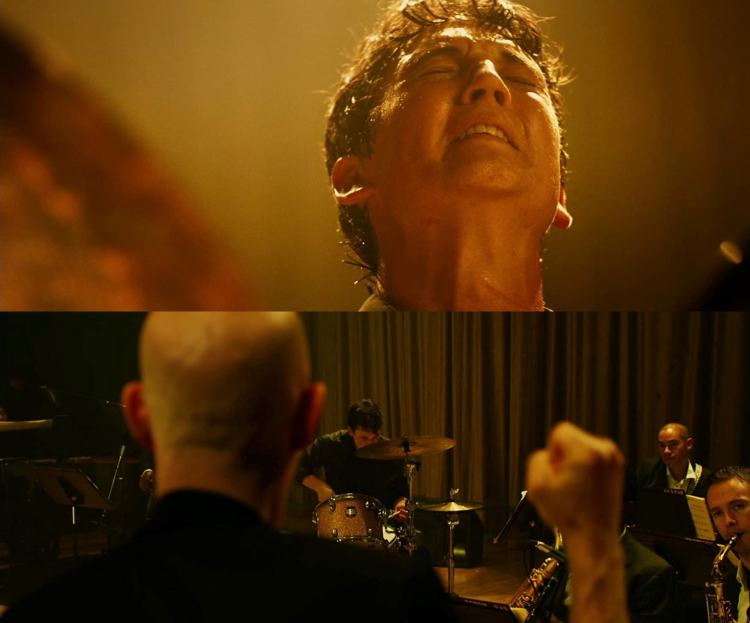
What’s depth of field?
The area of an image where the subject is within the perfect point of focus.
Shallow Focus?
Shallow focus shots feature sharply defined foreground figures and blurry backgrounds.
Deep Focus?
Where all elements of an image (foreground, middleground, and background) are all in sharp focus.
Shallow focus in Marie Antoinette

In this case shallow focus is used to signal a pivotal moment for the character, whilst focusing the audience’s attention solely on them and their reactions since they are the only subject in focus.
(Whip pan) Pan – Both left and right in The Grand Budapest Hotel
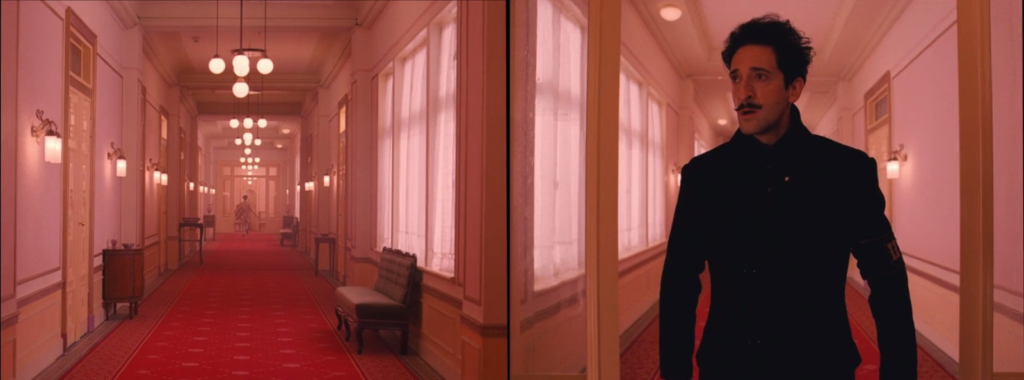
This effect of panning the camera shifts the audience’s attention from one character to another. In this case the shift is used to heighten the intensity of this scene as Dmitri chases Agatha as the audience are exposed to both Dmitri’s reactions and Agatha’s actions.
Tilt up in Jurassic Park
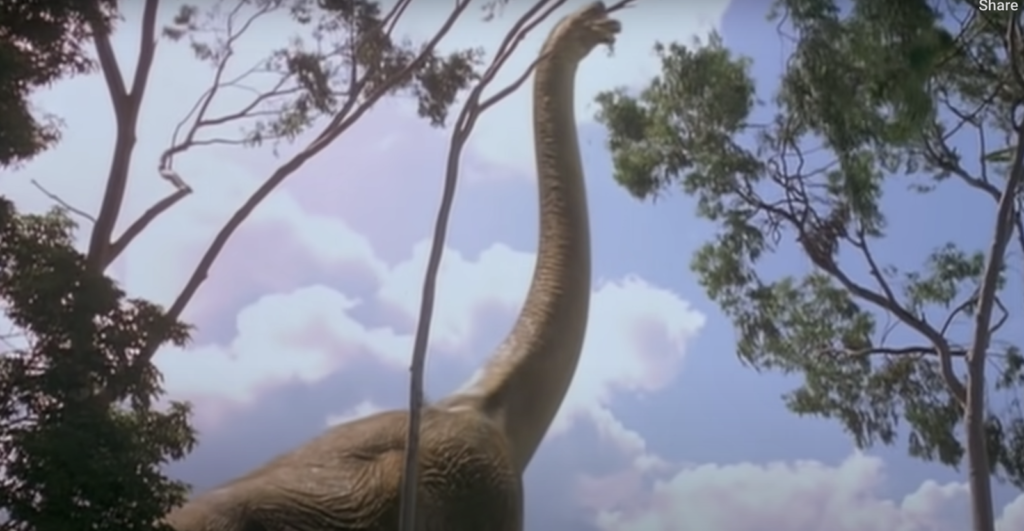
By using a Tilt up it emphasises the size of the dinosaur in comparison to humans, leading the audience to feel shocked and in awe due to the presence of the dinosaur.
Dolly Zoom in Jaws

The Dolly Zoom emphasises the panic and realisation felt by Martin Brody during the shark attack. It’s representative of the adrenaline rush and shock felt, leaving the audience feeling uneasy.
High Angle Shot in The Grand Budapest Hotel
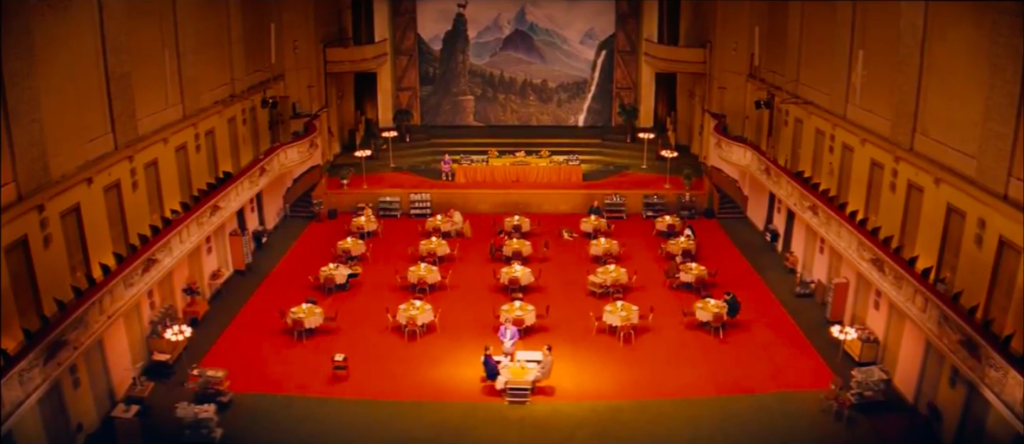
The use of the high angle shot in this scene highlights the emptiness and loneliness of the hotel, whilst revealing that its grandness is now only superficial – as the hotel has deteriorated over time.
Worm’s eye shot in The Shining

By angling the camera to look up at Jack it implies that despite him being trapped he’s still in control over both his family and the audience. As he looms over the camera tension is created as the audience are seen as inferior to him and left at his mercy.
Birds eye shot in Fantastic Mr Fox
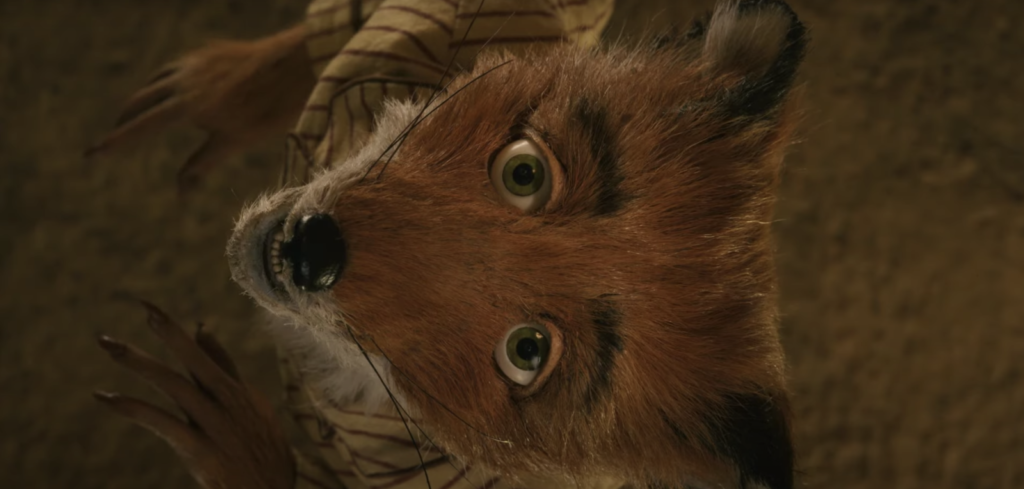
This emphasises the desperation the character feels in this scene and creates tension. This angle gives the audience power over the characters (foxes) representative of how the farmers (humans) in this scene also held power.
J cut: The next scene’s audio plays before the current footage changes.
L cut: When the audio from the previous scene continues to play over the footage from the following scene.
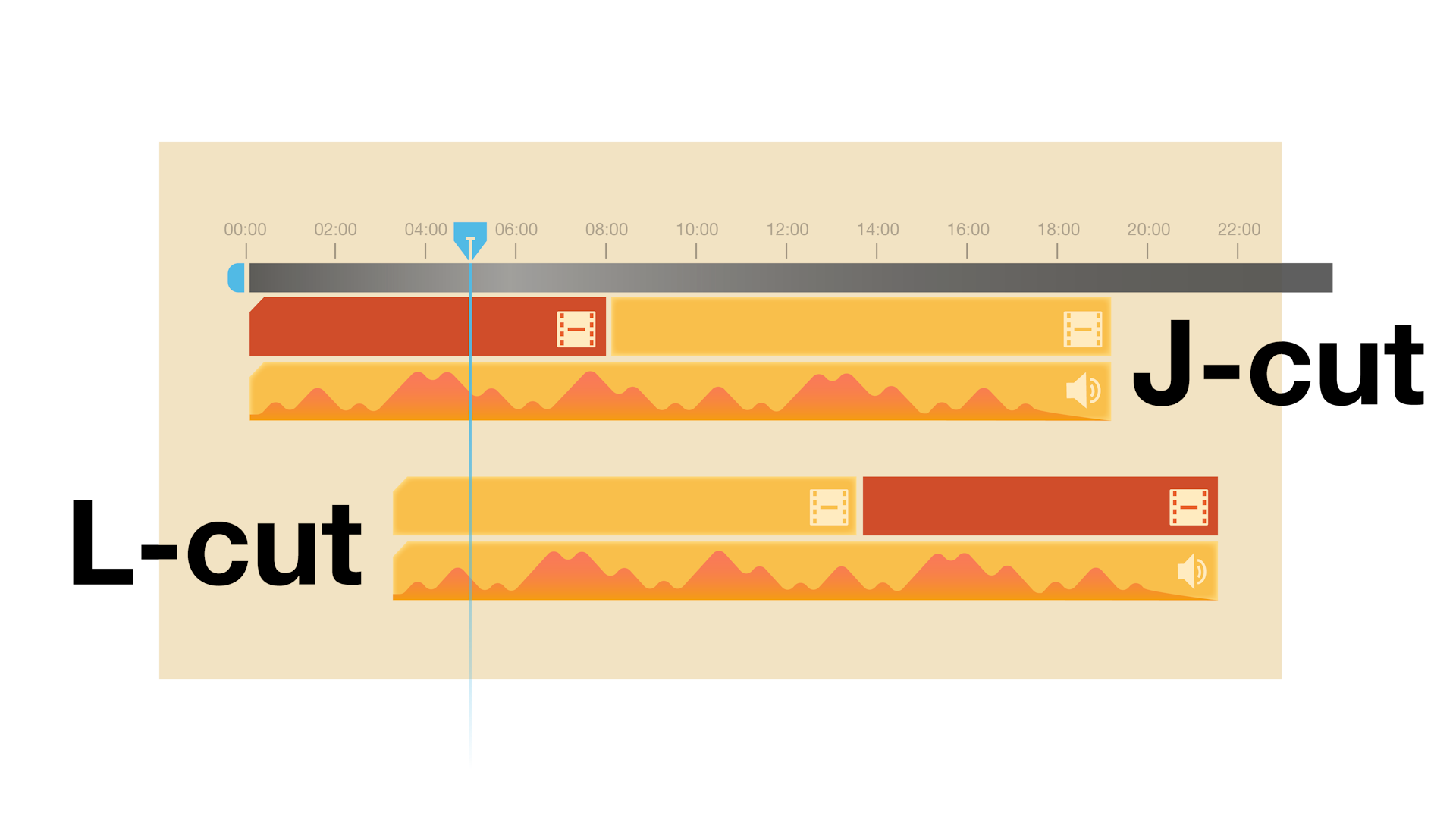

CU in The Royal Tenenbaums

This CU gives the audience insight into Richie’s live, encapsulating his depression and deterioration of his mental state. The CU with the simplistic/bare background focus and force the audiences attention onto Richie whilst making them feel uncomfortable and uneasy with anticipation.
XLS in Forrest Gump
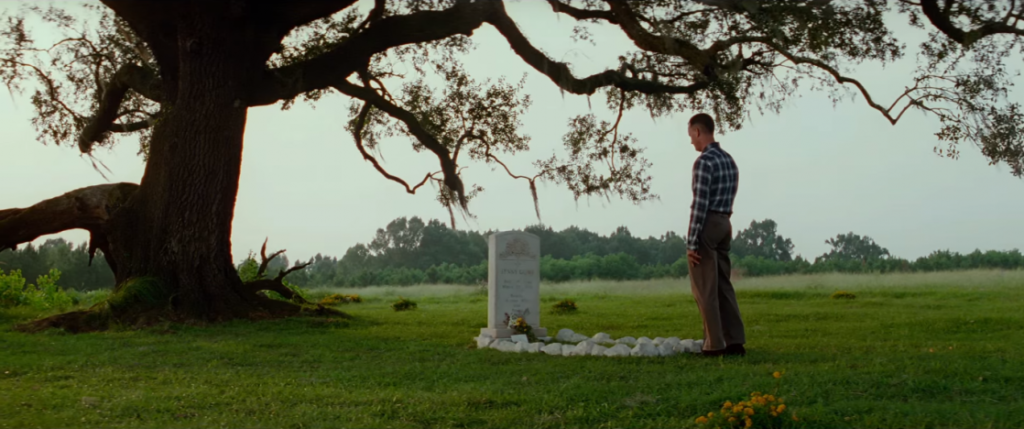
This long shot highlights the depth of Forrest’s loss and his grief as it reveals and establishes the setting/grave. It also distances the audience away from Forrest making it harder for them to connect with him in this moment and leading them to feel sympathy for him and sadness with him.
MS in The Titanic

This MS gives the audience insight into Jack and Rose’s relationship presenting it as magical whilst also capturing the tenderness of young love. The MS allows this to be naturally interpreted as it shows the characters together within the beautiful setting.
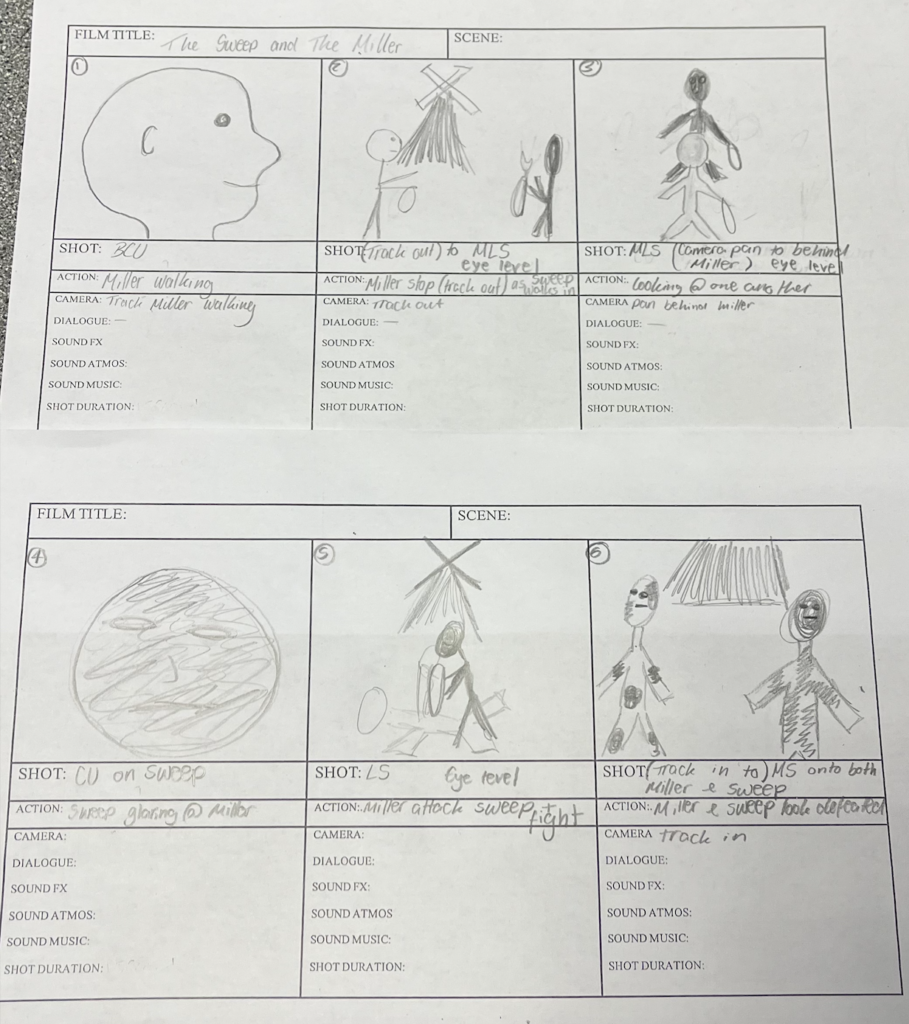
Diegetic
The Grand Budapest Hotel
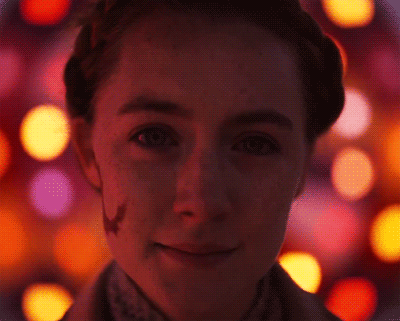
The use of this ECU directs the audiences attention towards Agatha and highlights Zeros love for her whilst also exploring the heavenly confusion of young love. Alternately, it could suggest that Agatha is a permanent fixation in Zeros mind and that his world revolves around her leaving the audience in a sense of awe for the couple.
Intra-diegetic
Blair witch project
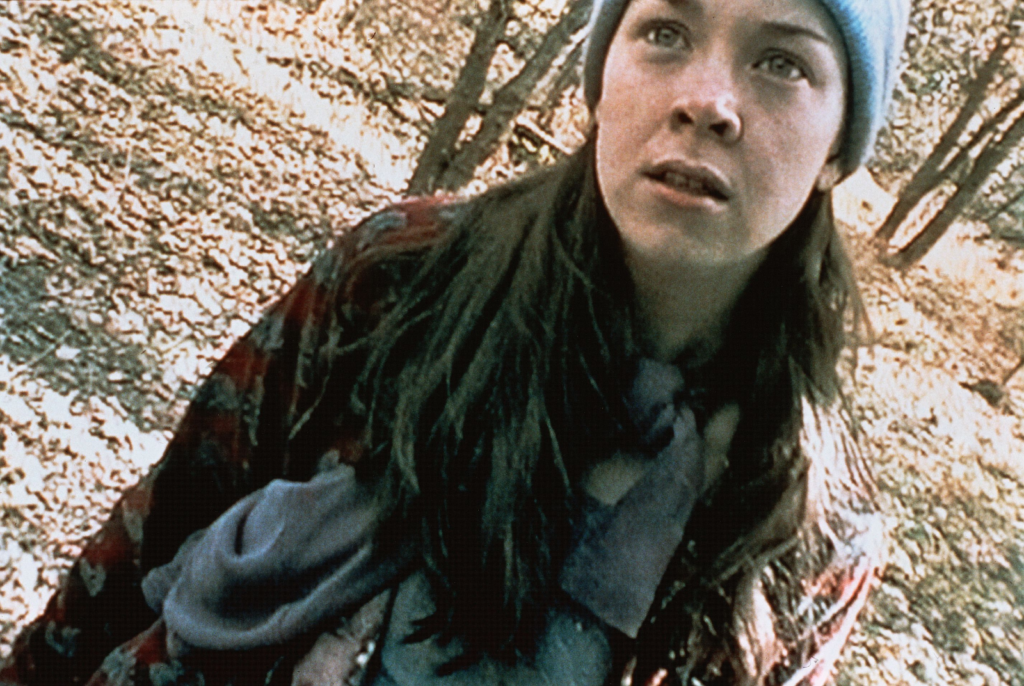
The Blair Witch project is shot to give the illusion it’s “recovered footage” this propels the audience into the story and creates a sense of realism, enhancing the horror aspect. It also leaves the audience uncertain and horrified to whether the footage is real.
Extra-diegetic
Amelie


Amelie breaks the fourth wall multiple times in the film and directs her attention towards the audience leading them to feel as if they have been engrossed into her world all whilst being charmed by her and developing a connection.
Enola Holmes
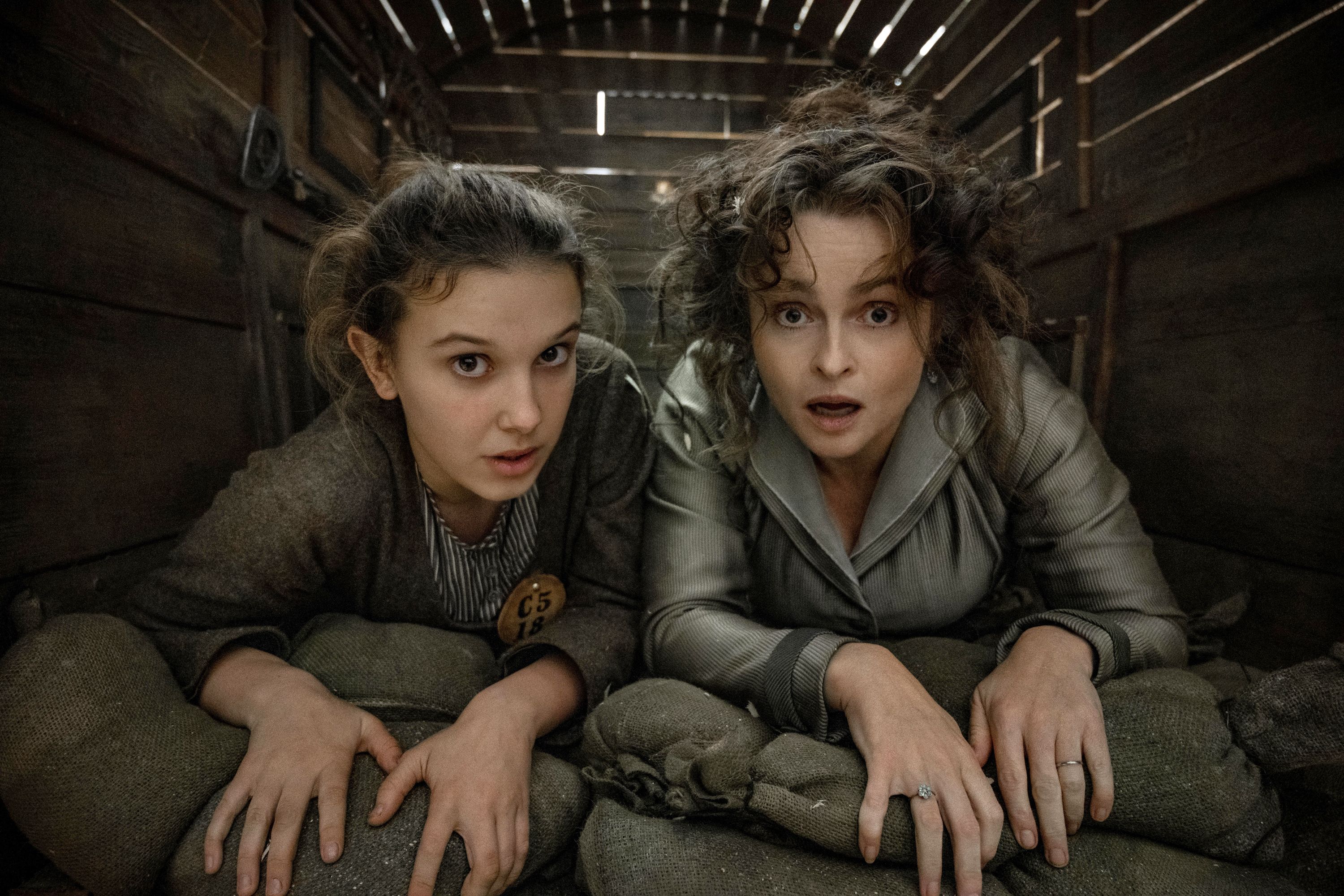
Enola Holmes 1 & 2 also break the fourth wall taking a more extra-diegetic approach, this effective device keeps the story in motion while also adding necessary insight/description and peeks into her independent mindset.